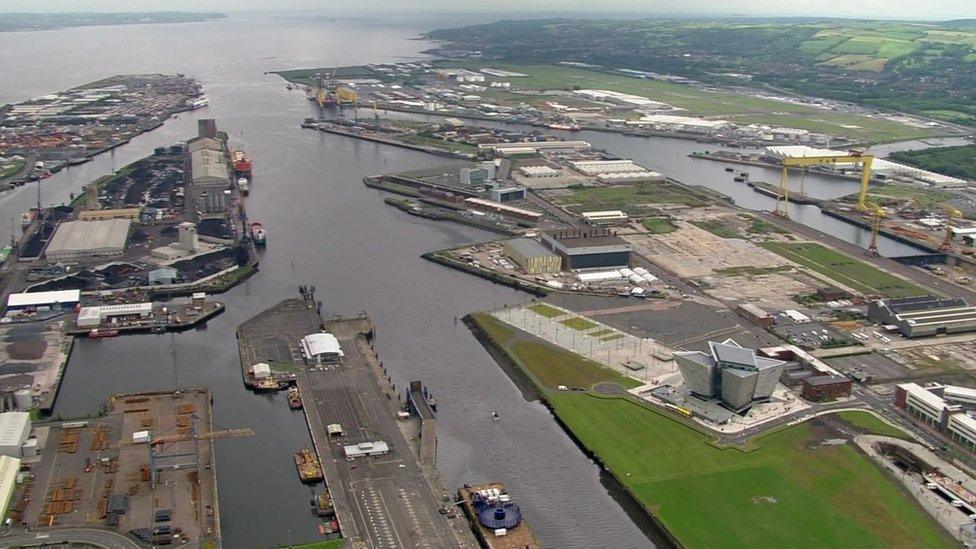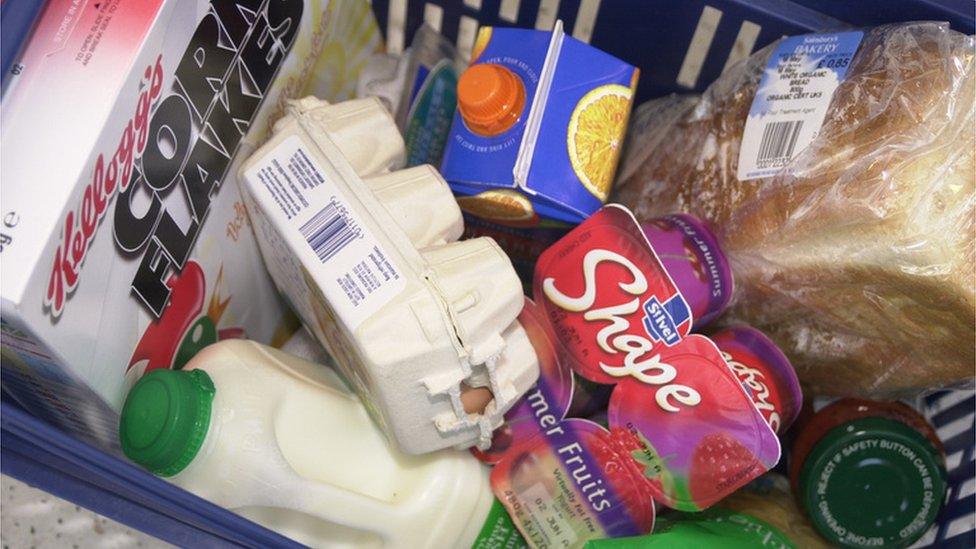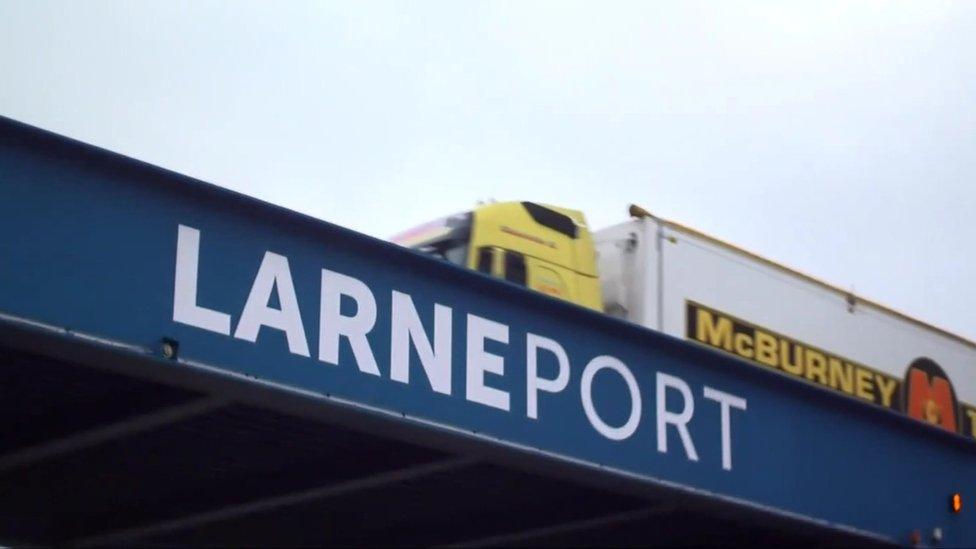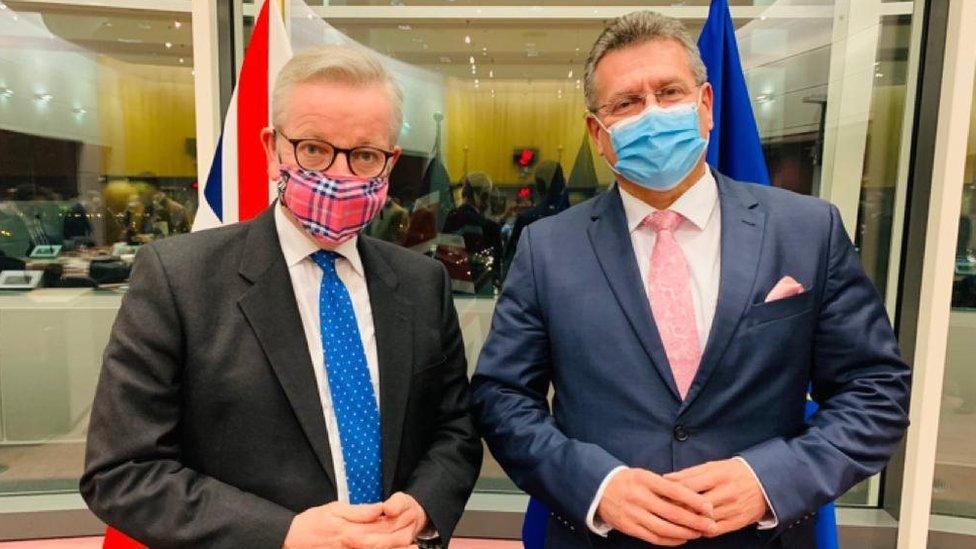Brexit: UK and EU announce agreement on new Irish Sea border
- Published

Northern Ireland will have to enforce EU customs rules at its ports when the Brexit transition period ends on 1 January
The UK and European Union have announced formal agreement on how the new Irish Sea border will operate in January.
Senior representatives of both sides met at the Joint Committee on Thursday.
They confirmed an agreement in principle which Cabinet Office Minister Michael Gove and EU commissioner Maroš Šefčovič reached last week.
Separate negotiations to reach a post-Brexit trade deal are still taking place.
A special deal for Northern Ireland, known as the protocol, formed part of the Withdrawal Agreement which took the UK out of the EU earlier this year.
The protocol will keep Northern Ireland in the EU single market for goods even as the rest of the UK leaves it at the end of this month.
The two sides had been negotiating on how the protocol should be implemented.
Among the key features of the agreement are a trusted trader scheme which will mean the vast majority of goods being shipped from GB to NI will not be at risk of having tariffs imposed.
There was also agreement on the role of EU officials in Northern Ireland to oversee aspects of the protocol.

Brexit - The basics
Brexit happened but rules didn't change at once: The UK left the European Union on 31 January 2020, but leaders needed time to negotiate a deal for life afterwards - they got 11 months.
Talks are happening: The UK and the EU have until 31 December 2020 to agree a trade deal as well as other things, such as fishing rights.
If there is no deal: Border checks and taxes will be introduced for goods travelling between the UK and the EU. But deal or no deal, we will still see changes.

Mr Šefčovič said it was an important milestone in the Brexit process.
"Throughout this year, we have worked tirelessly to ensure that both the letter and spirit of the Withdrawal Agreement are respected and translated into viable solutions," he added.
"These now provide businesses and people in Northern Ireland with clarity and stability, while upholding the integrity of our Single Market."
Related topics
- Published15 December 2020

- Published13 December 2020

- Published2 February 2024

- Published8 December 2020
